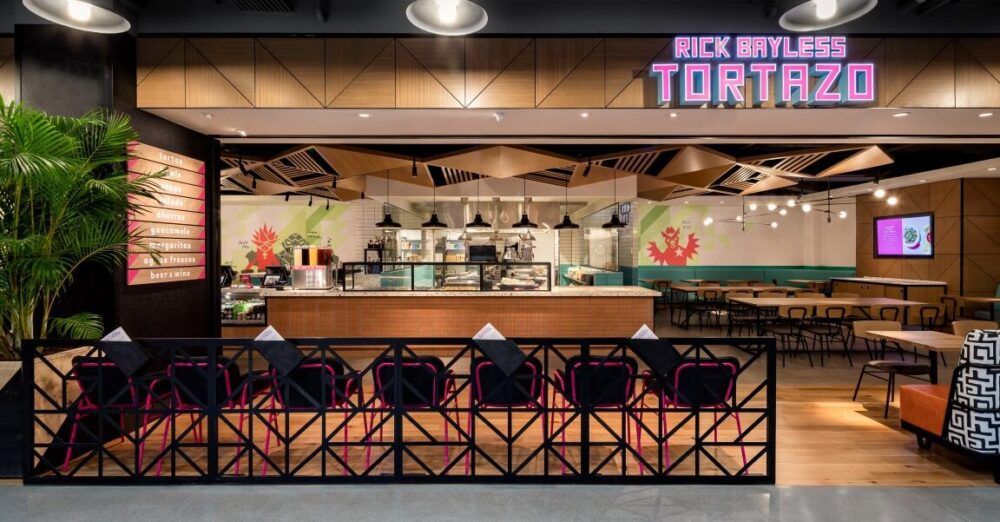Sustainability: Expanding Farm-to-Table
There are many ways in which businesses across the globe have begun to consider sustainability in their current operations. In some cases, they have even centered their establishments around a more self-sustaining core.

It is apparent that we as designers, professionals, consumers, and humans are at the precipice of a global economic call to action. Choices we make can and will affect future generations in a lasting and critical way. It is our job to invest in educating ourselves on the ways we can improve the work that we do and help lessen its environmental impact. It is important to strive for change, of any size, within our industry and those we work most closely with. For Aria Group, that means understanding the opportunity for sustainability within the hospitality, food service & design industries.
There are many ways in which businesses across the globe have begun to consider sustainability in their current operations. In some cases, they have even centered their establishments around a more self-sustaining core. This is the first in a series of posts highlighting sustainable practices. We are hoping that with this series we, as professionals and individuals, can join the ongoing dialogue on how we can help alleviate unnecessary waste, support local businesses, reduce emissions, and promote the evolution of the production and consumption methods to which we’ve grown so accustomed. As with everything we do, we hope to learn, grow, and spark conversations we can take part in alongside our clients, design professionals, members of the food service & hospitality industries, and consumers across the board — who are passionate about curbing their own environmental impact and sustainability.
So! To start off this series, we wanted to begin with a concept that hits slightly closer to home for us here at Aria Group. We’ve had the pleasure of working with many amazing clients on restaurant concepts across the city of Chicago, but today we wanted to highlight a few who’ve taken a dive, head first, into the farm-to-table market.
Farm-to-Table
Farm-to-table restaurants establish relationships with local producers, artisans, farmers and cultivators to source the ingredients for the dishes they serve. These relationships mean that a restaurant’s menu will change seasonally, with the rotation of crops and the climate within that region. These restaurants will frequently share ever-rotating fixed price dinners, tasting menus and specials that feature fresh ingredients and new culinary finds from trips to local farmer’s markets.

TORTAZO by Rick Bayless
Chef Rick Bayless has opened many award-winning restaurants, but we wanted to touch on his new concept Tortazo. This concept is a fast casual culinary experience celebrating the culture and cuisine of Mexico, that our design team helped to develop last year. While the team at Tortazo does source some quality ingredients directly from farmers and producers in Mexico, they also work very hard to partner with local farmers and businesses as well.
The James Beard Foundation has commended Rick Bayless on his role in boosting the market for sustainably produced, locally sourced foods. Not only has he made it his mission to partner with local farmers, he’s also worked to offer financial support to them through his nonprofit, Frontera Farmer Foundation. They provide farms grants to grow their operations (Good Food News: “Chef Rick Bayless’ Stewardship Helps Farm to Table Take Flight”). This year, the foundation plans to award up to $215K in total funds, for small to mid-size farms across Illinois, Indiana, Wisconsin & Michigan to assist during the COVID-19 crisis. Over $2.5 million in funding has been awarded since its founding in 2003 (Chicago SunTimes: “Rick Bayless Foundation Announces $215k in Grants to Small Farms”).

Lula Café
Another environmentally conscious Chicago staple and forerunner of the farm-to-table movement in the city is Lula Cafe. The restaurant opened its doors in Logan Square in 1999 and immediately began cultivating what, today, is an ever-changing, inspired, and farm-fresh menu. The chefs at Lula are proud to partner with local artisans, event planners, farmers, & producers of all kinds to support their innovative rotating menu’s, décor, and shop offerings.
Diving into the working, circular business relationships forged at these businesses draws attention to opportunities to minimize our economy’s reliance on mass production, as well work to eliminate emissions incurred from the transportation of goods across the nation. The concept of “farm-to-table” product sourcing can be applied to goods and services needed in all industries. As designers, we can work to partner with local craftsman, furniture manufacturers, material suppliers & artists. As individuals, we can celebrate found objects, refurbished goods & local artisans that source materials from other nearby manufacturers. By learning the values of the businesses we support and connect with, we not only form lasting relationships and partnerships with great people – we spark movement and change within these industries through sustainability.
Tortazo by Rick Bayless
Tortazo in partnership with La Fournette Bakery and Mighty Vine Tomatoes, among many others.
Lula Café in partnership with Green Acres Family Farm, Publican Quality Meats & Bread, & Fleur